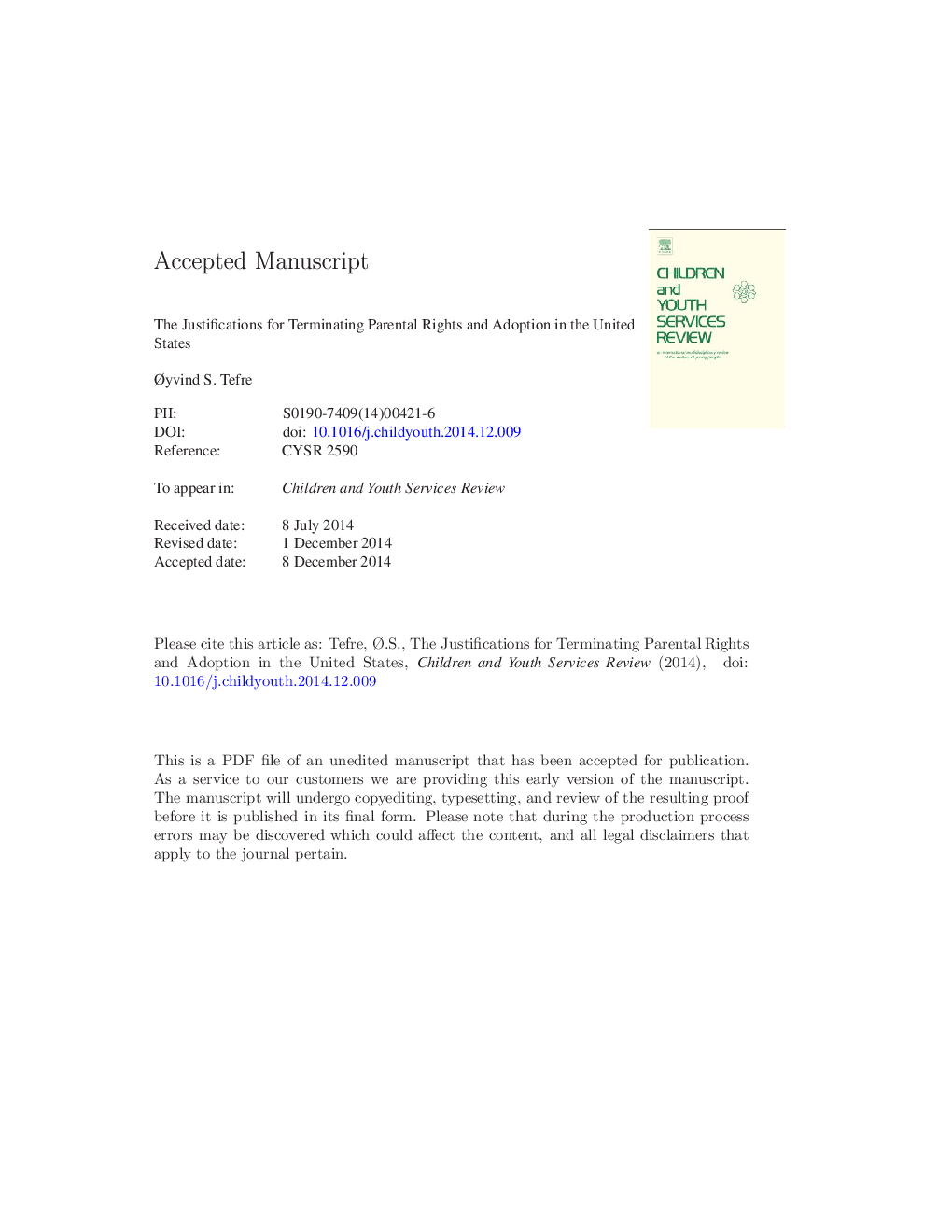| Article ID | Journal | Published Year | Pages | File Type |
|---|---|---|---|---|
| 6834101 | Children and Youth Services Review | 2015 | 27 Pages |
Abstract
This article examines the normative basis for prioritizing adoption in the “Adoption and Safe Families Act of 1997” (ASFA) as expressed by legislators and public witnesses in congressional hearings. By examining six congressional hearings in the period that led to the ASFA, the article provides new insights to understand how adoption is justified in the U.S. not only as an acceptable form of public intervention but also as an actively promoted and preferred approach when reunification is not possible. The article uses a discourse theoretical framework based on Habermas that distinguishes pragmatic, ethical-political, moral, and legal arguments. It reveals that U.S. federal adoption policy is based on three pillars. Pragmatic risk-oriented thinking forms the central knowledge base to inform policy. Parent responsibility ethics stresses individual responsibility for rehabilitation, with secondary support from the welfare system. Child refamilialization ethics emphasizes decisive and authoritative action to protect the child's needs for safety and permanence.
Related Topics
Health Sciences
Medicine and Dentistry
Perinatology, Pediatrics and Child Health
Authors
Ãyvind S. Tefre,
